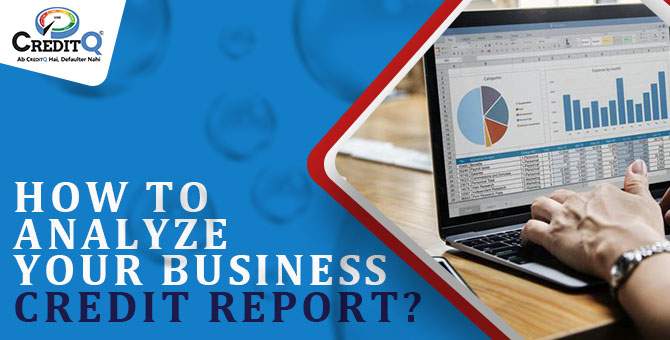
How To Analyze Your Business Credit Report?

Having a good business report is not enough. You should know how to analyze it so that you know about the factors that determine good credit scoring and how does it impact your company’s financial value. With that said, you should know that your business credit report comprises of different factors, including payment history, credit history, your company’s information, and other things.
The first and foremost thing that lenders may seek in your report is repayment terms. It seems relevant to talk about the benefits of paying your dues on time, alongside paying off or reducing your existing debt. Besides checking your company credit score, make it a habit to analyze your credit information report thoroughly. Many credit information companies such as CreditQ helps you obtain your business credit score and know your credit score.
This way, you can make out your current financial standing in the market and how you can improve on your score in case you have got a poor rating or review from any investors or lenders.
To analyze your business credit report, you should first know what is included in your credit report so that you can analyze it in a better way. Let us talk about the inclusion of the credit report in detail.
A business credit report is a detailed document containing information about your company, including the company’s structure, owners, and financial performance. It explains your creditworthiness and how you have managed your finances in the past.
Every credit information company organizes your credit report differently but mostly with common inclusions.
Your Company Profile:
Any business credit report takes into account your company’s information, such as your Standard Industrial Classification Number (SIC) to obtain information about your company’s industry and the business that you’re involved in. It also contains information about your company’s address, directors’ details, etc.
Your Public Records:
Credit information companies such as CreditQ collects information about your business through various sources. A credit report may contain information on judgments, tax liens, bankruptcies, etc. These are publicly available information that credit bureaus may consider including in the report.
Your Payment History:
Your lenders and suppliers report the number of average days it takes your company to pay them. Thus, your payment history is included in the business credit report. It helps your suppliers know if they’re at risk of receiving delayed payments so that they can dictate credit terms in case of offering you fund the next time.
Your Business Information:
A credit report also includes your company’s branches and facilities, and your financial statement, if available.
Analyzing Your Business Credit Report
You should know how to analyze your credit information report correctly. Here’re some tips to help you out with it.
Verify Your Information Thoroughly
Check if your SIC number is correct and up-to-date. In case the report lists a wrong business or you think the information is outdated, you can reach out to credit information companies to correct the details. If your information remains incorrect for a longer time, it can impact your business credit score. That’s why you should check your company credit score regularly. Any lending decision from the investor will largely depend on your credit score.
Report Your Business Defaulters
Credit information companies like CreditQ lets you report your credit defaulters who have been giving you’re a hard time getting back your money. They further help you in payment settlement. This way, you can check your vendor’s credit information report as well and decide if you want to do business with them in the future. It saves you money and reduces the risk of financial fraud.
Keep a Check on Your Company’s Records
While analyzing your credit information report, always ensure to check your payment history, account information, and public records. If you’re in a business for quite a while now, you’re aware of the fact that suppliers and lenders take a close look at your business credit report and likewise make their decision to fun your business. That’s why you should double-check the information, such as bankruptcy filings, tax liens, and any negative reviews they may have posted.
Analyze Your Company’s Reviews
In the last point, it’s clear that you should pay attention to any negative reviews posted against your company. Now to improve that, you must focus on the problem itself. Find out the reason for receiving a negative review in the first place. You can make it up for it by not delaying vendor’s payments and paying debts on time so that the next time when your report is generated, you should not be obliged to your lender’s reviews.
Now you know how to analyze your business credit report. You can use the CreditQ app to know the financial worth of your company and how you can attain a stable position in the market so that it becomes easy for you to get credit for the expansion of your business.